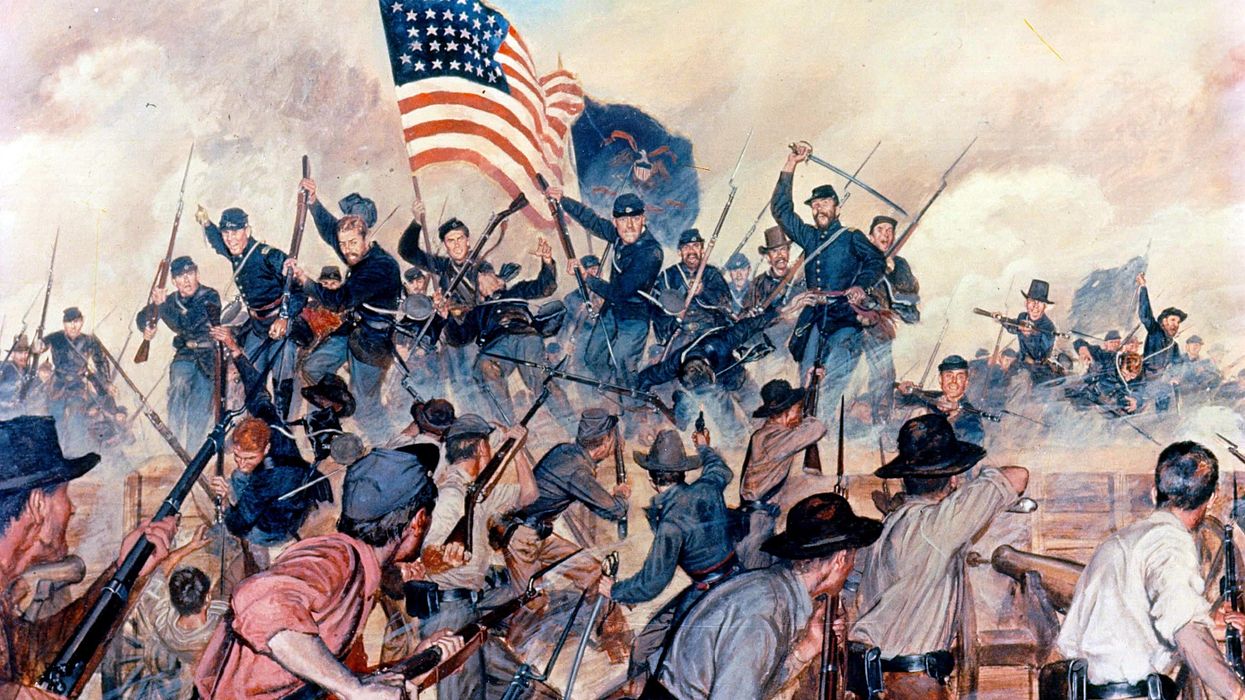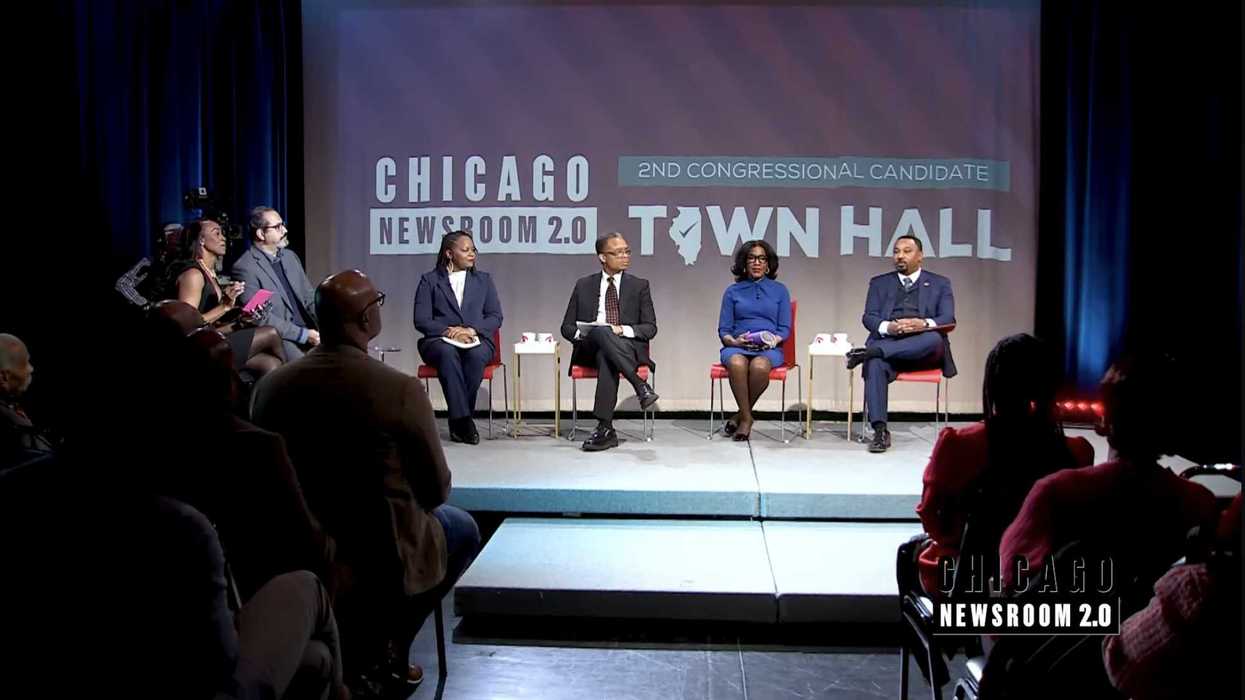The average American voter believes the country is two-thirds of the way to the "edge of a civil war," according to yet another survey showing divisions in the country are bad and getting worse.
The survey, by Georgetown University's Institute of Politics and Public Service, also found voters held seemingly contradictory positions. They agreed that people had become too uncivil and that a focus on solutions and common ground and compromise should be the goal of political leaders. At the same time, similar numbers of respondents said they want leaders who stand up to the other side and stand up to powerful interests.
When respondents to the survey were asked to rate the level of civility in the country on a scale of 0-100, with the top end identified as being the "edge of a civil war," the mean response was 67.
Respondents disagreed on whom to blame for incivility in the survey, run by one noted pollster of each party. Republicans blame Democratic political leaders, social media, large newspapers, CNN and MSNBC. Democrats blame Republican political leaders, social media, Fox News, wealthy special interests and President Trump.
Other key findings in the poll include:
- The greatest concern about uncivil and rude behavior by politicians came from women voters, Democrats and black voters.
- More than eight in 10 believe "compromise and common ground should be the goal for political leaders."
The Democratic pollster, Celinda Lake with Lake Research Partners, said the highest level of intense agreement from independents is that politicians in Washington are spending too much time working with special interests. The GOP pollster, Ed Goeas with the Tarrance Group, said restoring a higher level of civility will "take a dedicated and courageous group of Republicans, Democrats and members of the media to reject the easy tactics of uncivil rhetoric that paints opponents as enemies."




















